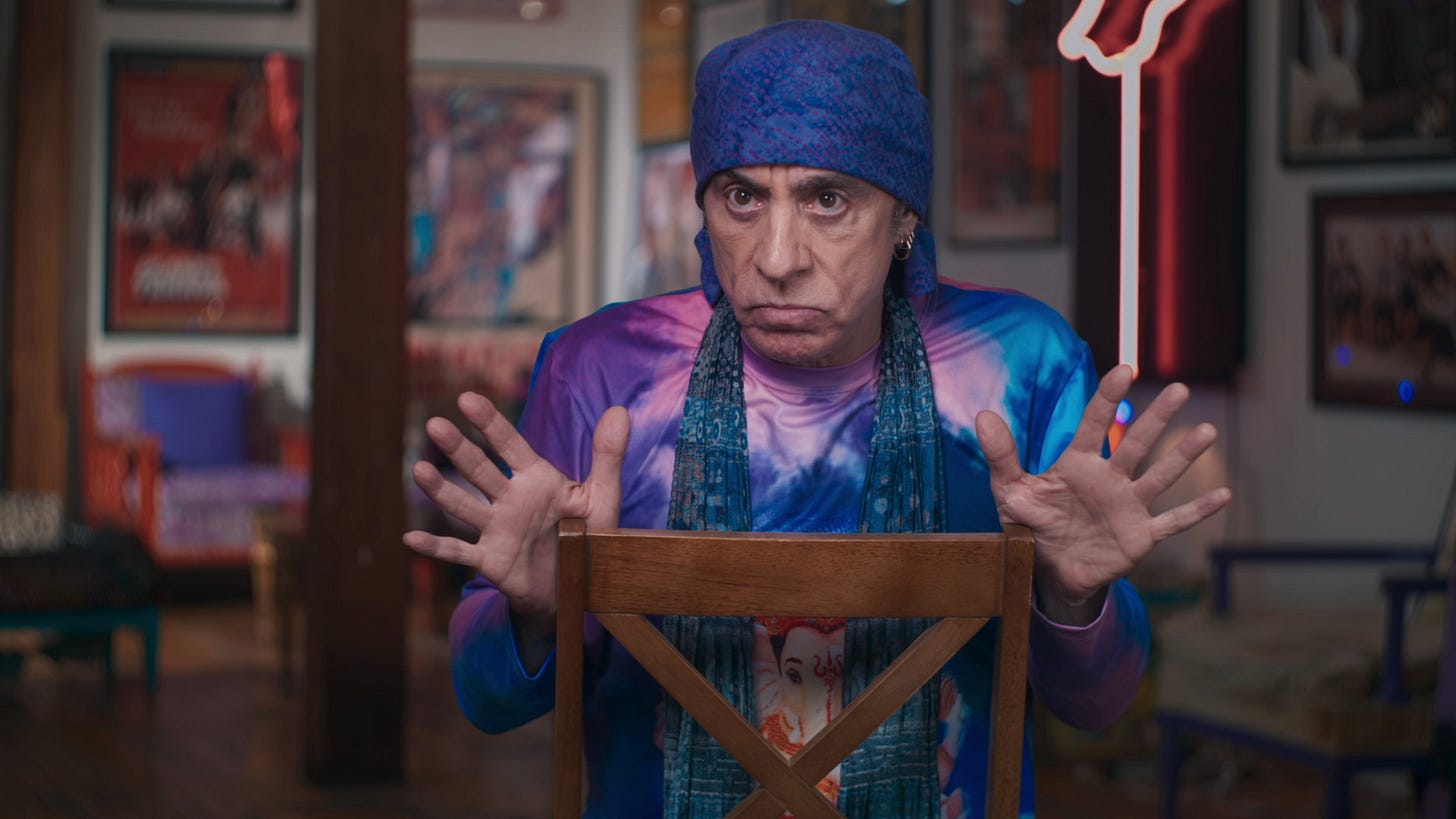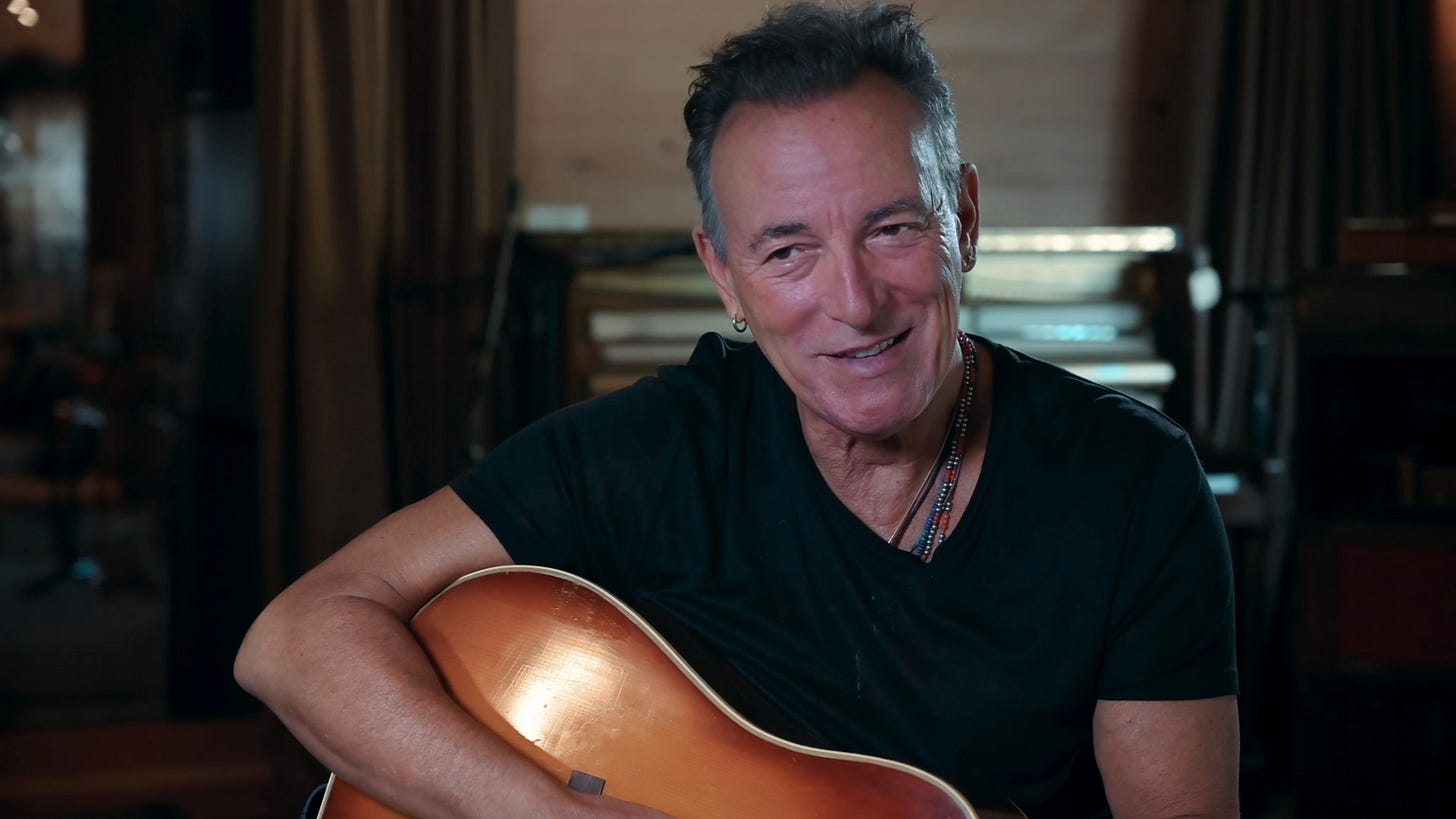‘Stevie Van Zandt: Disciple’ follows seven decades of New Jersey’s greatest sideman
The new HBO documentary explores a multifaceted life- but doesn’t offer a lot of surprises.
Everyone knows the basic trajectory of “Little Steven” Van Zandt’s life story. Born in Massachusetts in 1950, he moved at age 7 to the state where he would spend his entire life closely associated, New Jersey. Italian-American, he took the last name of a stepfather, hence the incongruous Dutch surname.
He formed his first band at age 14 and soon became a key figure in the rock scene in New Jersey, first with Southside Johnny and eventually as a guitarist in Bruce Springsteen’s E Street Band, a position he still occupies all these years later. He’s in both the Rock and Roll Hall of Fame and the New Jersey Hall of Fame.
Van Zandt spent most of the 1980s as an outspoken political activist, especially regarding the anti-apartheid cause. He spearheaded the associated song “Sun City.”
Then, in 1999—the same year the E Street Band reconvened after a 15-year hiatus—he began playing Silvio Dante on The Sopranos despite nearly nonexistent previous acting experience. After that, he starred in Lilyhammer, which happened to have been the very first Netflix original streaming series. Now in his 70s, Steven has recently hosted satellite radio shows and toured regularly with both Springsteen and his band, the Disciples of Soul.
A new documentary, Stevie Van Zandt: Disciple, debuted at Tribeca earlier this month and lands on HBO and Max this weekend. Directed by Bill Teck, it has Van Zandt on camera, a long list of talking heads that includes The Boss himself, and all the relevant archival and musical footage.
If you’re a Stevie fan or an enthusiast of any of the multiple cultural phenomena he’s been a part of, you’ll likely enjoy this. But don’t expect to be much surprised or to see any deviations from the usual documentary formula.
I’ve been fascinated by Stevie’s career in the past; I even interviewed him back in 2019. But when people say a documentary is like “a filmed Wikipedia entry,” this is what they mean.
The doc’s first part, exploring Van Zandt’s early life, musical career, and the initial formation of Springsteen’s famous band, successfully re-creates a sense of place in New Jersey in the 1970s. Van Zandt tells us, in one of the few surprises, that his early songwriting was inspired by Lieber and Stoller.
Springsteen proves to be a fine interview subject; I admire his commitment to appearing for each interview segment with a guitar on his knee. Between Bruce, Paul McCartney, Eddie Vedder, Bono, Darlene Love, and numerous others, Van Zandt is undoubtedly very good at getting his famous friends to participate.
The film soon powers into the ‘80s, when Van Zandt quit the E Street Band before its post-” Born in the USA” breakup. It then dives into the Artists United Against Apartheid era, showing us a politically strident version of Little Steven that we haven’t seen much of in recent years.
Then, it’s on that 1999 E Street reunion when, on tours, that “Live in New York City” album and special, and eventually the post-9/11 “The Rising” album, the group was doing some of its best work ever.
And then, it’s on to the Sopranos run, complete with some commentary from David Chase and Van Zandt pointing out that, in calling himself the “consigliere” of the E Street Band, he had been preparing for a role for many years. There’s also a look at the actor’s post-Sopranos series, Lilyhammer.
The film mostly concludes by looking at Van Zandt’s solo work — probably more than it warrants — and his hosting of Underground Garage.
Look, this is all very interesting, and I enjoyed watching it, even if only a little ground is broken. Since major documentaries are coming later this year about both The Sopranos and Bruce Springsteen, expect to hear more Stevie stories then.





